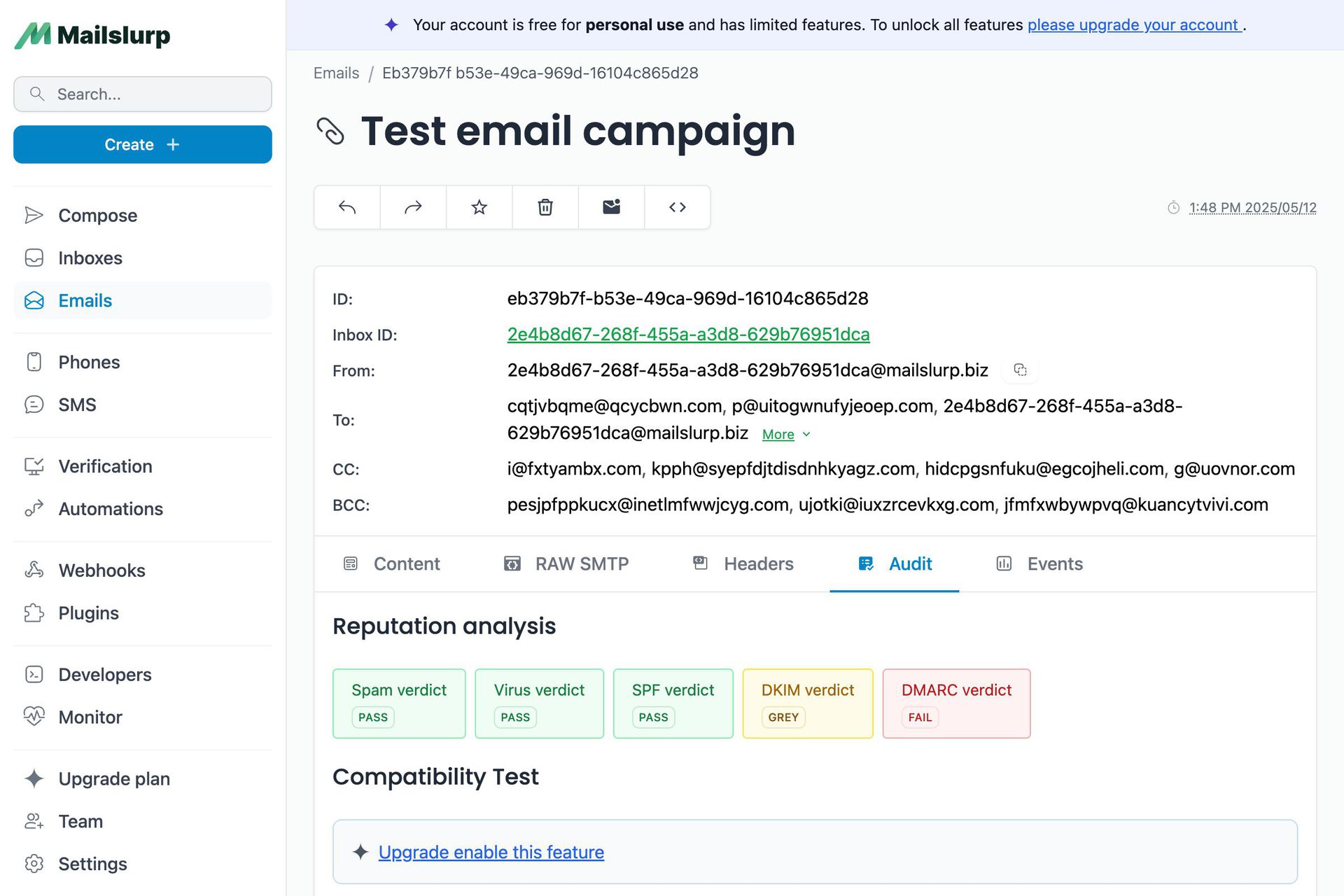Videos
Check out our tutorial video series.
Converting Files to Base64: Node.js, Java, and Golang Ways
Uploading files to APIs like MailSlurp's typically involves sending a file as a base64 encoded string to a server as the text/plain body of an HTTP POST request. Converting a file to a base64 string means reading a file into a byte array and then encoding the byte array into a string using base64 encoding.
Here are different ways to convert a file to base64 in several common languages.
To convert a file to Base64 string in Node:
To convert a file to Base64 string in Java 8+:
To convert a file to Base64 string in Golang:
Check out our tutorial video series.
Email and SMS guides for automation and testing.
View github project code for multiple languages.
Latest posts from the MailSlurp team.
Test, build, and automate messaging with a free MailSlurp account.
